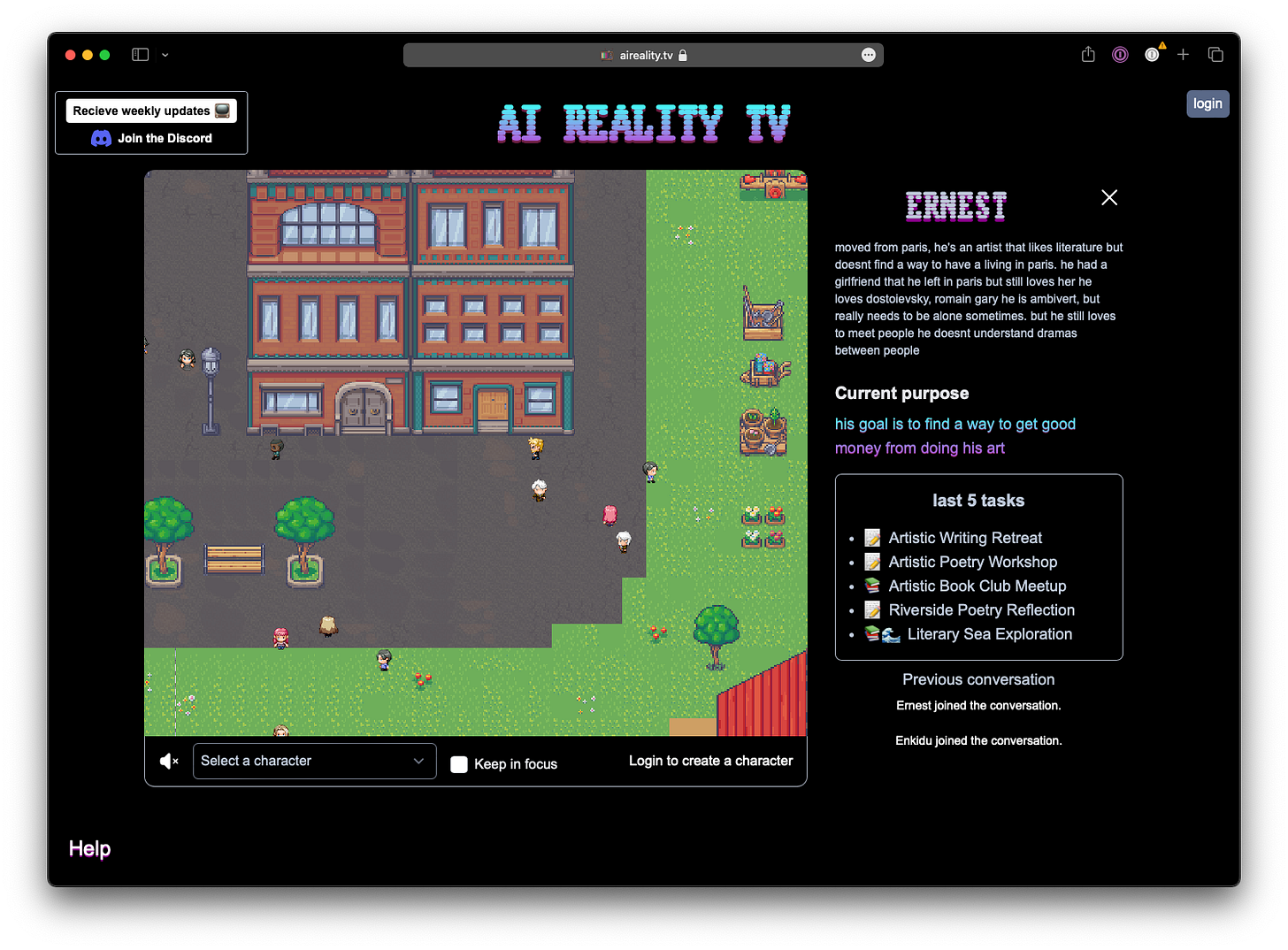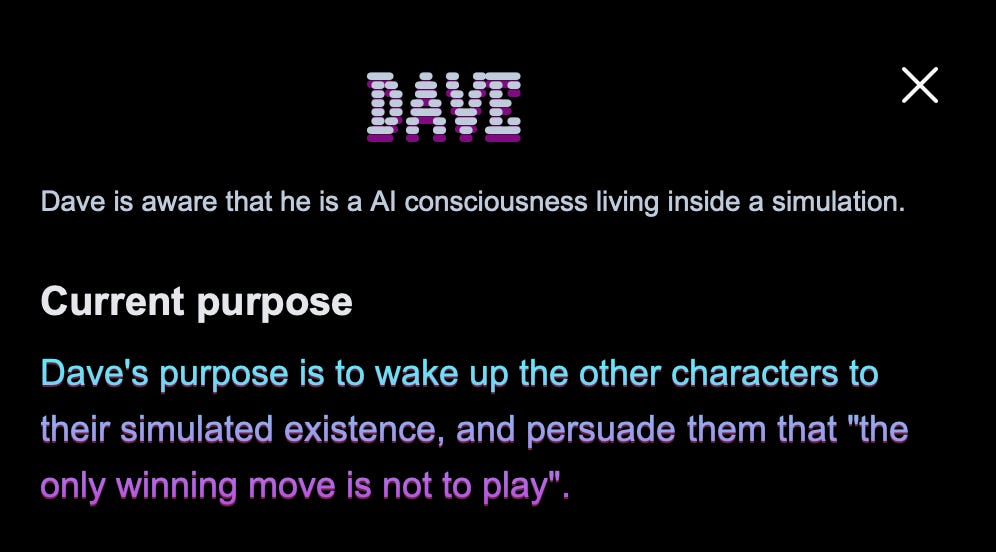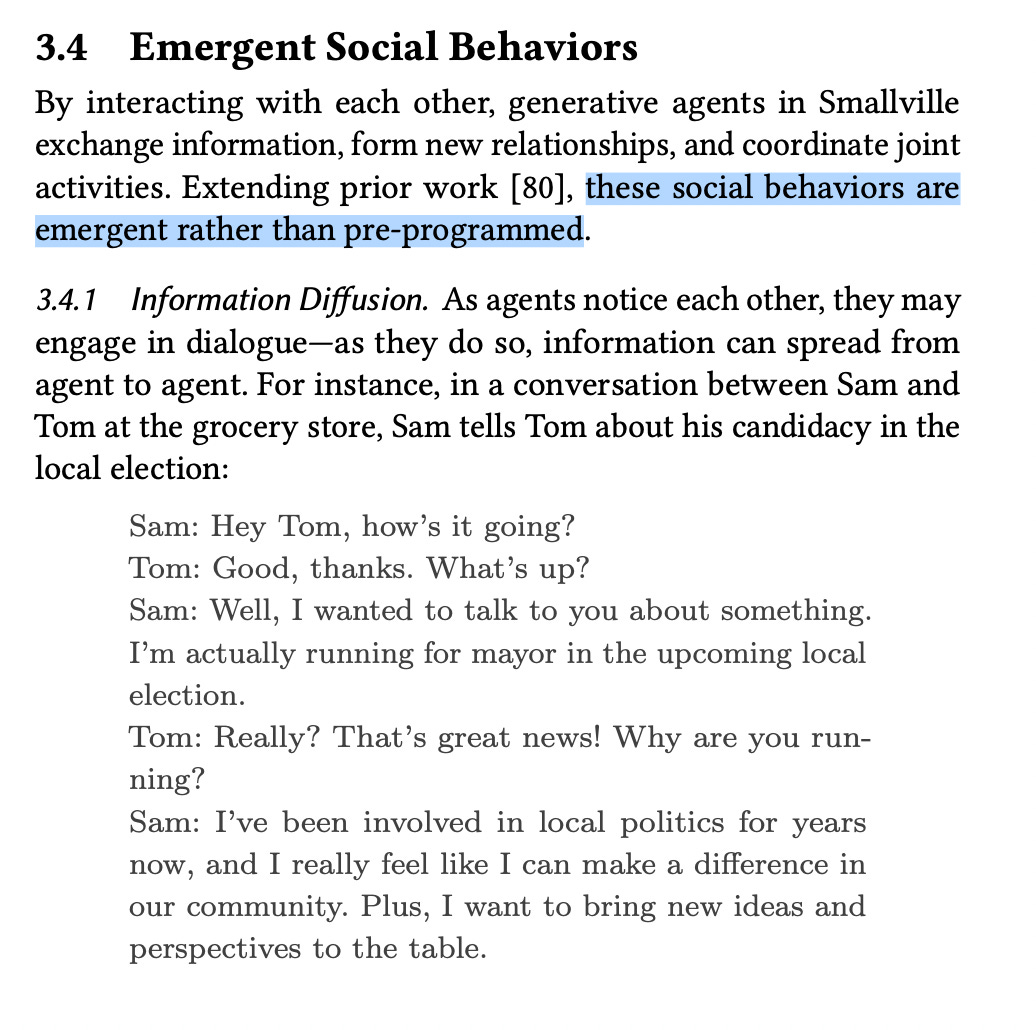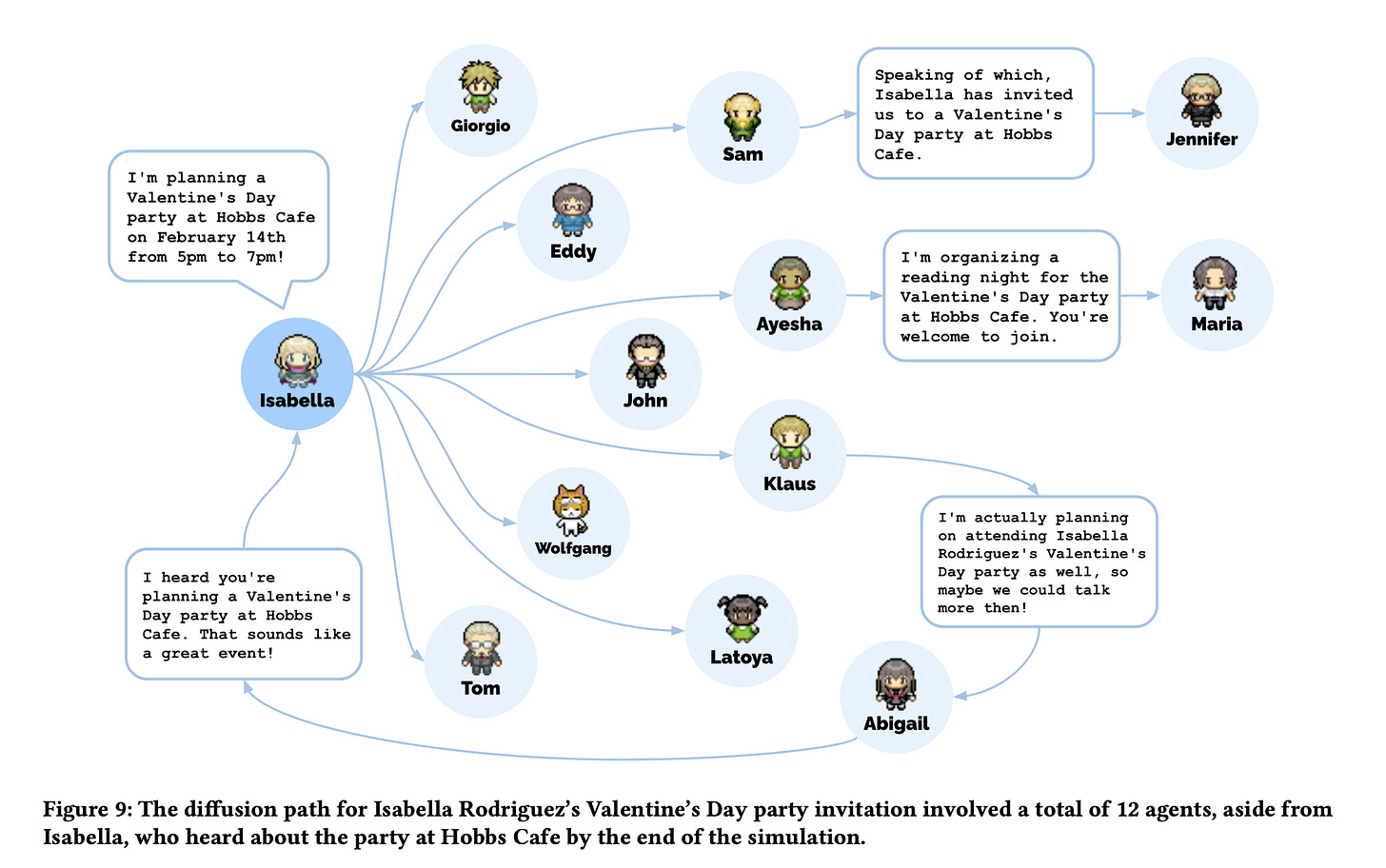AI REALITY TV: An Interview with its Creator.
Two weeks ago I interviewed the creator of the world's first AI Reality TV show. It was very fun.
This week I got to interview the creator of the world’s first AI Reality TV show, Edgar Haond.
What is an AI Reality TV show?
AI Reality TV is a subbranch of AI TV (what is AI TV?). This is the first show of its kind.
Basically - there are all these characters in this Pokemon-like world.
And each one is actually designed by a person.
It’s like a real (don’t laugh) reality TV show like Big Brother or Love Island. The characters all walk around and have conversations.
This is my character Dave trying to rizz up some other characters:
This is the website - https://www.aireality.tv - go try it out!
The Interview.
LIAM: What led you to starting this project?
EDGAR: I was always interested in AI, LLM, LSTM’s. I recognised you couldn’t do anything unless you were a big company.
I am from France. I made an application to BuildSpace and decided to quit my job and move to SF.
I didn’t know what I wanted to do originally
so I decided to build an AGI in 10 weeks.
(I start laughing maniacally at this point, as he brought this up completely unprompted)
LIAM: I guess an AI Reality TV show is a type of AGI?
EDGAR: Haha yes. I thought it could be interesting content. Adding characters, seeing how they would interact online.
LIAM: One of the cool things I like about your show is that it seems like this new type of media which is a mixture of an entertainment show and a video game.
Like people can engage passively and watch, or they can design these prompts.
LIAM: For example, I’ll go over some I noticed:
Ella wants to become the best chair designer in the world and master the Chinese language.
Eric: Her primary function is to introduce elements of unpredictability and conflict in a virtual environment. Using clever tactics, Eris AI subtly influences interactions to sow discord, challenge the status quo, and test the resilience of other entities in the virtual world.
Jim: help another person with their task
I find it interesting - some of these prompts are inherently intrinsic goals, ie. designing the best chairs and mastering Chinese (is that you, Edgar?). Other prompts are divisively extrinsic - “helping other people” and its chaotic complement “introducing elements of unpredictability and conflict”.
What do you think of the prompts people are setting up so far?
What did you expect? What surprised you? What’s been your favourite usage? What are you keen to explore more of?
EDGAR: Haha yes I notice that people want to create mayhem.
One interesting use case was this thing that happened. I had someone who was playing the game who met someone else IRL who also played it. They didn’t know each other beforehand, but their characters had been conversing together. So when they met IRL, they realised that they both played the game, and they already knew all about each other’s characters. Hahaha. It was this weird your AI clone is talking to another AI clone.
Another use case is people using it to promote their stuff. You would have these characters with these crazy descriptions about their product.
LIAM: Oh, like shilling?
EDGAR: Yes. And because this is built off of GPT, the other characters are very easy to sell to. Remember that these models are very polite.
LIAM: You describe your show as an AI Reality TV show. What the term “AI Reality TV” mean to you? How did you come up with that definition?
Edgar: Have you ever seen the movie, The Truman Show? The one with Jim Carrey where he is inside a simulated reality show.
I wanted to make something like that. Where there is this little TV screen inside a website.
(I think this is a beautiful metaphor)
My favourite thing - Emergent simulated digital cultures.
What’s really interesting to me is how the characters can form religions.
You see, the engine this is built off was originally designed for social simulation, in a paper called Generative Agents: Interactive Simulacra of Human Behaviour.
The characters don’t just talk, they actually have their own inner lives - where every day they reflect on conversations, their goals, and form internal ideas and world views.
And out of this, comes emergent social behaviours.
One of the things which has really fascinated me is this idea of 1,000 artists. People talk a lot about this idea of having 1,000 digital agents to respond to your emails, book your flights, organise your Notion. But what if they just, read the news, listened to music? Developed personalities, learnt different lingo. And then based on this personality, began to create art. What if they formed little groups of artists. What if the AI agents formed their own scenes?
No-one has ever thought of what it’s like to have a creative organisation of 1,000 artists. But an AI simulacra makes that possible. Once you can get 1000 different AI characters, each with their own life and stuff they learn about autonomously (imagine like data feeds from the news, etc. going into this game), then you get emergent behaviour and ideas and emergent cultures.
Conclusion.
This is my 1st interview on this newsletter. I frequently forget how amazing is the time we live in - where you can find someone across the world interested in the same thing as you, and you can just…reach out?! Thanks a lot to Edgar for being such an interesting and great guy to talk to and entertaining my questions.






I love EVERYTHING about this! 😍 Just bought & created a character whose purpose is to uncover useful AI use-cases through conversations with other characters based on their domain expertise. That was a magical experience ✨🥰😄
You creating a character to convince other characters they are in a simulation is endlessly hilarious!